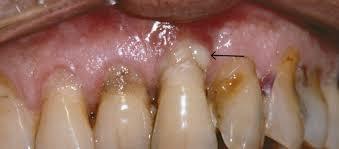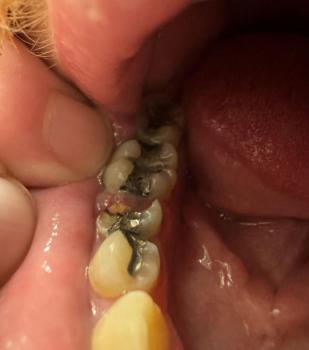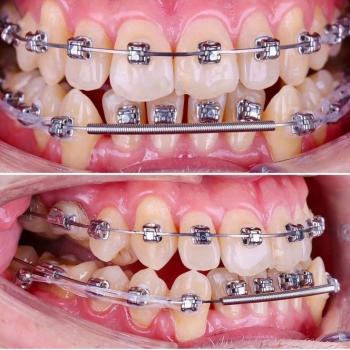Dentures That Feel Natural, Look Beautiful.
The Hidden Price of Your 15-Peso Meal: How Instant Noodles Are Quietly Hurting Filipino Families.
Language :

The Instant Noodle Dilemma: A National Health and Dental Crisis in the Making. The prevalence of instant noodles on Filipino tables is undeniable. For millions of below-income and middle-class families, it is a cornerstone of daily and weekly meals due to its extreme affordability, convenience, and long shelf life. However, this dietary habit, born out of necessity, has severe repercussions for the nation's overall health and, specifically, the dental health of its population.
The Macro Effect on the Philippine Population
When a significant portion of the population consumes a nutritionally deficient and medically risky food item regularly, it ceases to be an individual choice and becomes a public health issue.
-
Increased Burden of Metabolic Diseases: The direct links to heart disease, stroke, and diabetes mean the country could see a sharp rise in cases of these non-communicable diseases (NCDs). This places an immense strain on the public healthcare system, leading to higher national healthcare costs, lost productivity due to illness, and increased mortality rates.
-
The Cycle of Poor Nutrition: Instant noodles create a false sense of fullness without providing essential nutrients like protein, vitamins, and minerals. Regular consumption, especially in children, can lead to "hidden hunger" or micronutrient deficiencies. This can result in:
-
Stunted growth and development in children.
-
Weakened immune systems, making the population more susceptible to infections.
-
Chronic fatigue and reduced cognitive function, impacting learning and work performance.
-
-
Economic Impact: While cheap in the short term, the long-term cost of managing chronic diseases like diabetes and hypertension is catastrophic for families and the national economy. Households can be pushed into poverty due to medical bills and lost income.
The Silent Epidemic: Widespread Tooth Damage
The damage to teeth is often less immediately frightening than a heart attack, but it is pervasive, painful, and incredibly costly to treat. Here’s how a daily noodle habit directly attacks oral health:
1. Rampant Tooth Decay (Cavities):
-
The Mechanism: Instant noodles are made from refined carbohydrates. When you chew them, the starches quickly break down into simple sugars. This sugar, combined with the sticky paste-like texture of the noodles, clings to tooth surfaces and gets trapped between teeth.
-
The Result: The bacteria in dental plaque feast on this sugar and produce acids as a waste product. These acids dissolve the hard, protective enamel of your teeth, leading to cavities. The more frequently you eat instant noodles, the more frequent these "acid attacks" are, giving your saliva no time to naturally repair the enamel.
2. Accelerated Gum Disease (Periodontitis):
-
The Mechanism: A diet consistently high in sodium (like one heavy in instant noodles) contributes to hypertension. High blood pressure can impair blood flow throughout the body, including to the gums.
-
The Result: Gums become vulnerable, inflamed, and less able to fight infection. This starts as gingivitis (red, swollen, bleeding gums) and can quickly progress to periodontitis, a severe infection that destroys the bone supporting your teeth. This is a leading cause of tooth loss in adults.
3. Nutritional Deficiencies that Weaken Oral Structures:
-
The Mechanism: Instant noodles lack crucial nutrients for maintaining strong teeth and healthy gums, such as Calcium, Vitamin D, Phosphorus, and Vitamin C.
-
The Result:
-
Without Calcium and Vitamin D, tooth enamel weakens and the jawbone that anchors teeth can deteriorate.
-
Without Vitamin C, the body cannot produce collagen, which is essential for healthy gum tissue. This leads to weak gums that bleed easily and are prone to recession, exposing sensitive tooth roots.
-
The Vicious Cycle for Low-Income Families
This creates a devastating cycle:
-
A family eats instant noodles frequently because they are affordable.
-
Family members develop cavities and gum pain.
-
Dental care is often seen as a luxury and is postponed due to cost.
-
The pain worsens, leading to emergency dental visits that are far more expensive (e.g., for tooth extraction instead of a simple filling).
-
Tooth loss affects nutrition (as people choose softer, often less healthy foods), self-esteem, and the ability to find work.
-
The high cost of dental treatment pushes the family deeper into financial stress.
What Can Be Done? A Call for Awareness and Action
Addressing this requires a multi-faceted approach:
-
Public Health Education: Government and NGO-led campaigns are needed to educate Filipinos on the hidden health costs of excessive instant noodle consumption, focusing on practical, affordable alternatives.
-
Promotion of Affordable Alternatives: Encourage the incorporation of locally available, nutritious, and budget-friendly foods like eggs, sardines, bananas, sweet potatoes (kamote), and vegetables like kangkong and malunggay into meals.
-
Preventive Dental Care: Strengthening community-based oral health programs, promoting school-based fluoride mouth rinsing, and emphasizing the importance of brushing with fluoride toothpaste after meals can help mitigate the damage.
-
Individual Action: If instant noodles are consumed, encourage the practice of adding an egg, some vegetables, or a handful of togue (mung bean sprouts) to add nutritional value. Most importantly, drink water with the meal and brush teeth thoroughly 30 minutes after eating.
The humble instant noodle is more than just a quick meal; it is a significant factor in the health of the nation. By understanding its impacts and taking proactive steps, families can protect their health and their smiles without breaking the bank.












